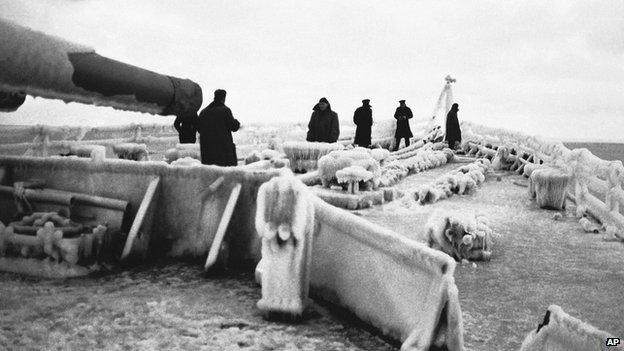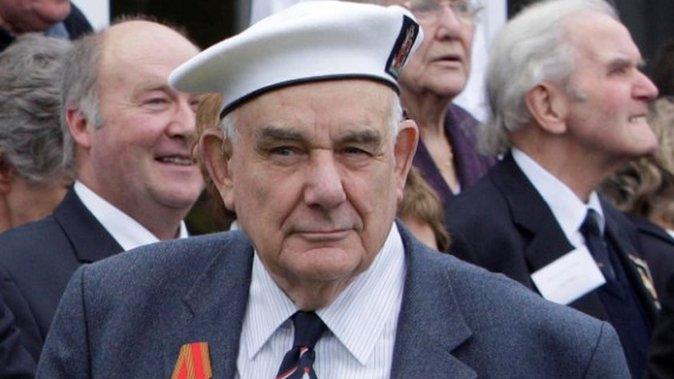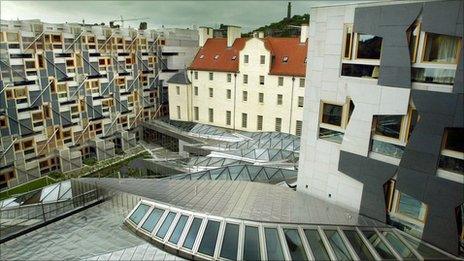Russian Ushakov Medals for WW2 Arctic Convoy veterans
- Published

The convoys often operated in freezing conditions
Four Russian medal ceremonies are to be held in Scotland to honour sailors who served on World War Two's Arctic Convoys.
From 1941 to 1945, Allied ships sailed from Scotland and Iceland to Russia to supply it with food and weapons.
More than 3,000 seamen lost their lives to the freezing conditions and attacks by German submarines and aircraft.
From Thursday, ceremonies will be held in Edinburgh, Glasgow, Aberdeen and Inverness.
In total, 214 Ushakov Medals will be presented.
The ceremonies will be held at St Mary's Cathedral in Edinburgh on Thursday, Glasgow City Chambers on Friday and Aberdeen Town House and Inverness Town House on Saturday.
The honour is named after Fyodor Ushakov, an 18th Century naval commander who never lost a battle and the patron saint of the Russian navy.
The medal was originally established in 1944 for those who demonstrated courage and prowess in sea warfare.
It is now awarded to veterans "for personal courage and valour shown during World War Two while participating in the Arctic Convoys".
Convoys left the Clyde and Loch Ewe in Wester Ross during the effort to supply Russia with food and weapons from 1941 to 1945.
The British Merchant Navy along with Russian, US, Canadian, Norwegian and Dutch merchant fleets were involved.
In total, 78 convoys sailed to and from Russia under escort from Allied warships.
- Published28 August 2012

- Published14 September 2011
